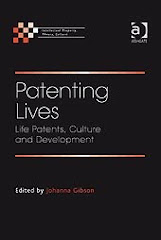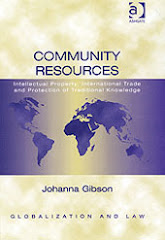 At Monday's meeting of the Competitiveness Council, agreement was finally reached on EU funding of stem cell research through what has been described as a "historic" compromise. Under the terms of the compromise, the part of the research process that requires the destruction of human embryos, to allow the harvesting of embryonic stem cells, will have to be funded by other means.
At Monday's meeting of the Competitiveness Council, agreement was finally reached on EU funding of stem cell research through what has been described as a "historic" compromise. Under the terms of the compromise, the part of the research process that requires the destruction of human embryos, to allow the harvesting of embryonic stem cells, will have to be funded by other means.The positions of different member states over the direction of FP7 funding to stem cell research were outlined in "Heated Debates". In a campaign led by the German Federal Minister
 for Education and Research, Dr Annette Schavan, Germany has been strongly opposed to the use of EU funding for stem cell research, subsequently joined by a group of countries in opposition to the proposed expenditure. However, as mentioned in "Heated Debates" the movement of Slovenia towards the support for the research left the opposing countries unlikely to achieve a blocking minority.
for Education and Research, Dr Annette Schavan, Germany has been strongly opposed to the use of EU funding for stem cell research, subsequently joined by a group of countries in opposition to the proposed expenditure. However, as mentioned in "Heated Debates" the movement of Slovenia towards the support for the research left the opposing countries unlikely to achieve a blocking minority.And so, after a lengthy debate, Germany supported Monday's compromise which will allow individual member states to continue the funding of stem cell research with money from the EU's £37 billion science budget (around 50 billion euros). The bargain was the assurance from the European commission that no EU money would be directed to projects involving the destruction of human embryos. Annette Schavan, explained that the important point was "that there can be no financial incentives for the destruction of embryos."
Originally the divisions between for and against were described as divisons between Roman Catholic and non-Catholic countries. However, this characterisation has been shown to be too simplistic, with Portugal strongly in favour of stem cell research. According to Nicholas Watt's report in the Guardian newspaper, Portugal's Minister of Science, Technology and Higher Educ
 ation, Dr Jose Mariano Gago, "turned on his opponents" and argued very emotively and personally, "I hope that none of the colleagues will ever need treatment which does not yet exist for dementia and Alzheimer's. These are treatments which could be made possible by research with stem cells. If you find yourself in such a position I hope you would be able to say you did not stand in the way of such research."
ation, Dr Jose Mariano Gago, "turned on his opponents" and argued very emotively and personally, "I hope that none of the colleagues will ever need treatment which does not yet exist for dementia and Alzheimer's. These are treatments which could be made possible by research with stem cells. If you find yourself in such a position I hope you would be able to say you did not stand in the way of such research."The decision reflects an emphasis on the sovereignty of individual members of the European Union, allowing individual states to decide whether to spend EU money in this way within its own borders.

Following US President Bush's veto last week of federal expenditure on stem cell research, a potential "US brain drain" has been described, with scientists heading to the EU to take advantage of the research funding compromise. As reported in the Guardian, Lord Sainsbury has described the US President's position as "a very negative position."

Earlier this week, Professor Stephen Hawking of the University of Cambridge warned the EU against taking the "reactionary lead" of the US. However, Professor Hawking has described the EU compromise as a "fudge," and has raised concerns that it mounts practical limits to the research.
Nevertheless, yesterday, just one day after the agreement, the University of Cambridge announced the new £10million Cambridge Stem Cell Inititiative, The Institute for Stem Cell Biology. The new centre will be dedicated to stem cell research, under the direction of Austin Smith, the former director of the Institute for Stem Cell Research (ISCR) at the University of Edinburgh. Funded primarily by the Wellcome Trust, the new centre will open in December.



2 comments:
Wonderful and informative web site. I used information from that site its great. » » »
Very cool design! Useful information. Go on! » » »
Post a Comment